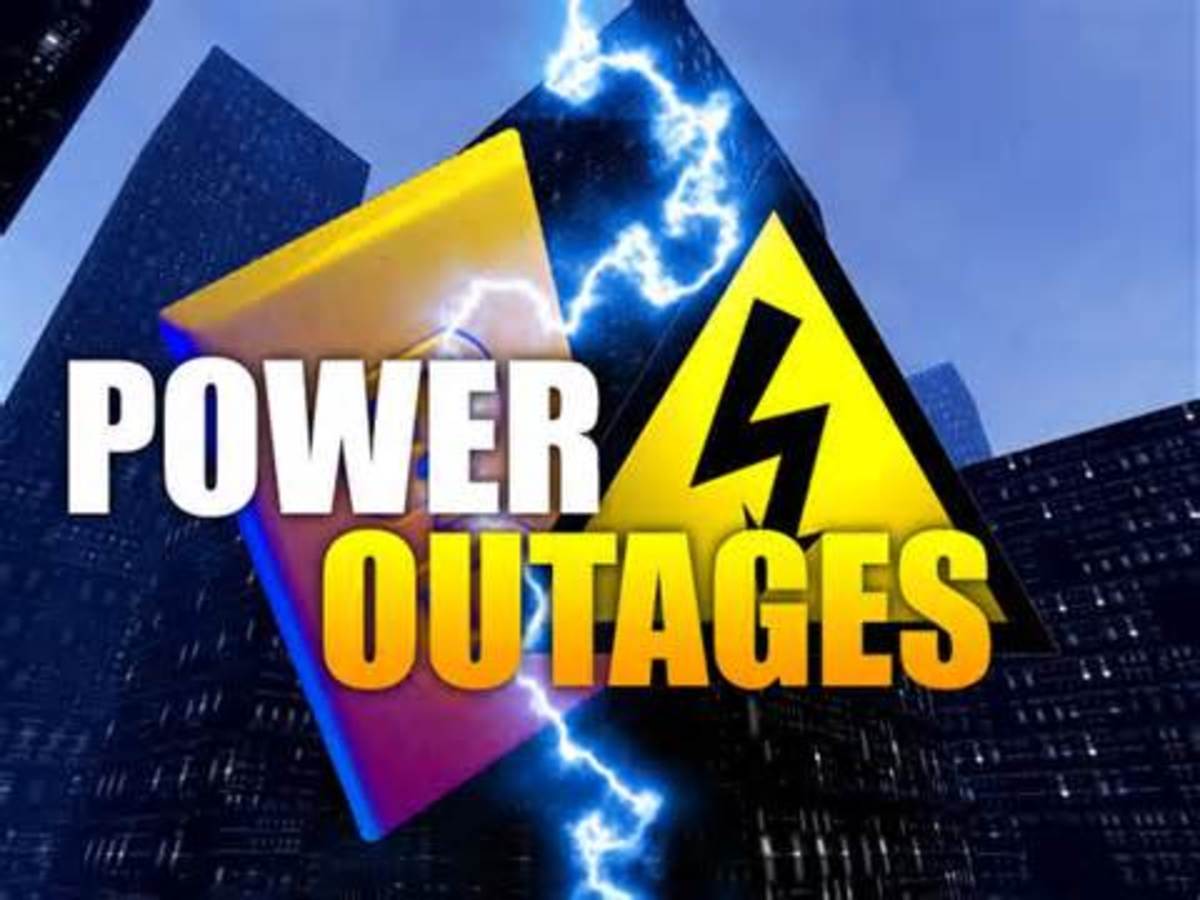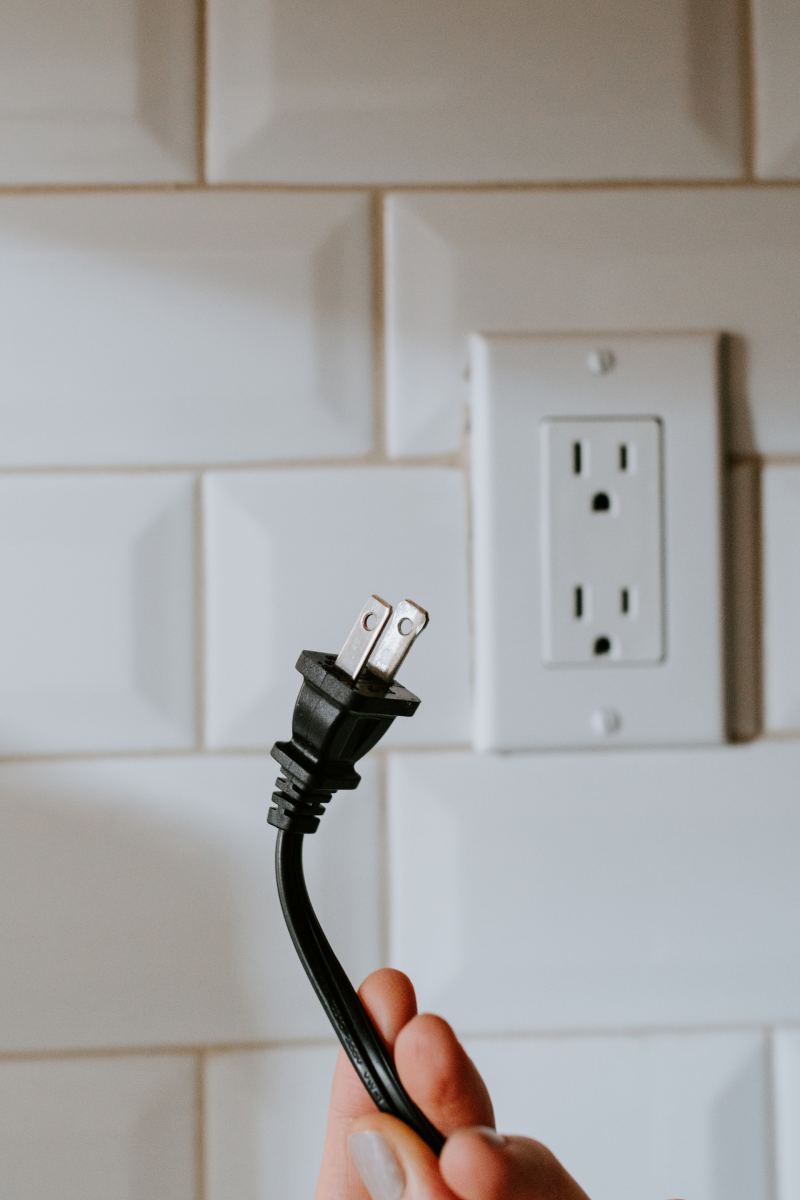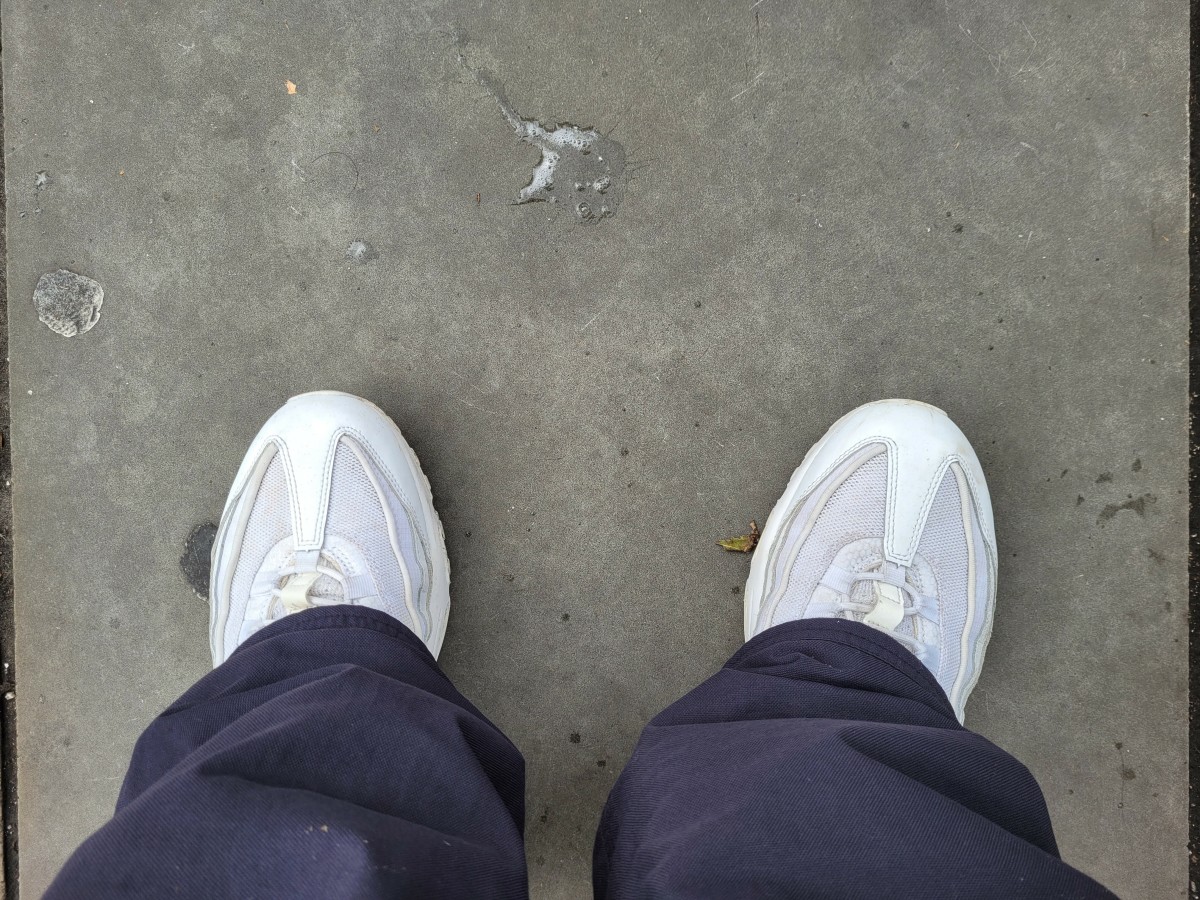Never Underestimate the Power of One
It began with a phone call...
It was a Monday morning in August with the outdoor temperature already in the 90s and the heat index ten degrees higher and climbing. My phone rang and, when I answered, a recorded voice from the electric power company informed me there would be “reliability work” in my neighborhood on Thursday. I assumed this meant routine preventive maintenance: checking the lines, poles and plant hardware.
The message ended with this clincher: “There will be a power outage from approximately 9:30 am until 5:30 pm.”
An all-day power outage in August? In the Deep South, USA?
Now, I realize the power company uses the psychological ploy of providing a “worst-case scenario” when predicting how long an outage will last, on the premise that if it ends even a little sooner the customer will be satisfied. Even so…purposely scheduling an outage of any length during the hottest hours of the day and the hottest month of the summer here in my neck of the woods strikes me as a very poor operations strategy. It is decidedly not customer-friendly.
I checked the online weather forecast for my area. On Thursday, we could expect a potential high of 90 degrees Fahrenheit with the heat index rising to 100+ during the afternoon and the possibility of thunderstorms. The air is rarely cooler after these heat-caused brief storms end. Clouds disappear, and the sun beats down as hot or hotter than it was before the first drop of rain. Any time it FEELS like 100 degrees to me, it doesn’t matter what number registers on the thermometer. The humidity in my part of the planet is what drives the heat index, giving us sweltering summers.
Hot and humid...

I live in a mid-20th-century house with several window a/c units and fans. My central air conditioning system bit the dust four summers ago—I still recall with depressing clarity the June day it died—and my retirement budget just wouldn’t (and won’t) stretch to cover a replacement. Only two years before that, a tornado took out my mature hardwood shade trees.
Since then, the sun beats down unmercifully on my roof. During these late summer afternoons, the interior of my house gets unpleasantly warm even with all the window units and fans plugging away. During the planned power outage on Thursday, my home was certain to turn into a sauna.
I wasn’t going to stand by and let that happen—not without making an effort to stop it. As soon as that thought entered my consciousness, I began mentally developing my plan of action.
Start with a plan...

You probably wonder why I didn’t decide to simply leave home before the outage began Thursday morning, go someplace cool and stay there all day. That might seem the logical solution, but it would not be the right one for me.
A critical factor is the care my recently blind dog needs. She has not thoroughly adjusted to her loss of vision and needs more attention from me than formerly. In addition, I must apply ophthalmic ointment to her eyes every two hours to prevent the severe pain of corneal abrasions that untreated dry eye syndrome would cause. I would not leave her alone in a house overheated like an oven all day, and taking her someplace else wasn’t practical.
I grabbed the phone as I mentally assembled the elements of my plan to stop the Thursday outage. Not trying wasn’t an option.
~~~~~~~~~~~~~
Hot summer temps can be dangerous for the elderly, small children and people (as well as pets) with chronic health conditions because of their increased risk for dangerously high body temperature, or hyperthermia. There are frequent hot weather alerts via local news in this area targeting high-risk groups during the hottest months of the summer. Aren’t the people in charge at the power company paying attention?
Power outages due to severe weather can’t be helped, of course, and I credit our electric power company with repairing damaged power lines as quickly as possible in those situations. What I could not understand, however, is why their engineers would schedule a planned outage for the hottest month—August. It showed a lack of concern for the wellbeing of customers, particularly those most vulnerable to summer heat.
I decided to phone the power company and appeal to management for a delay in the “reliability work” and planned power outage until local temperatures dropped into the safety zone. After going several rounds with a maddening automatic telephone menu in lieu of a human, I knew it was time to try another tactic.
Overheating may cause a medical crisis in vulnerable individuals.

If at first you don’t succeed…don’t give up! TRY AGAIN!
Next, I phoned the state agency that regulates and maintains oversight of all utilities and said I wanted to register a complaint. A spokesperson agreed that timing of the planned power outage for routine maintenance work seemed a mistake, but went on to explain, “We do not micromanage them.”
Although she promised to “…see what I can do and get back to you…”, I sensed that the issue wouldn't be given priority status.
That is when I used good old Google to find the staff directory of my city’s newspaper and punched in the direct number for the assistant managing editor of news, business and features. (My story seemed to fit all three categories.)
She listened to me and agreed that August is a bad time for a planned power outage. She asked if I would agree to be interviewed. Would I? That was just what I had in mind!
Fast forward an hour later to another phone call—this time, from a newspaper staff reporter. She interviewed me over the phone and promised to call back after she talked to contacts at the power company's local office. I felt certain the utility's management would not be pleased at the possibility of adverse publicity and would take action to prevent it. The action I wanted was cancellation of the planned outage, and I now felt confident it was a distinct probability.
You may wonder why I called a newspaper editor rather than a local TV station’s news department. In light of the fact that I worked for an international cable TV corporation for more than two decades, I’m certainly aware of the potential local TV news has to reach the masses.
However, before then—way back when I was young—I also worked as a part-time “copy runner” on this same newspaper. In addition to being a gofer, I wrote obits and college briefs—just enough mini-journalism to give me newspaper fever.
Over the years I wrote feature articles for a newspaper in the Dallas/Ft. Worth area and, after moving back to my home state in the mid-90s, a couple of feature articles for the same editor who assigned a reporter to this story. People do read newspapers in my city and its suburbs. In fact, this newspaper is not only the city daily, but the state’s preeminent daily, with both paper and online issues. I believe this newspaper still garners respect from residents when it comes to local and state news.
If it had become necessary in order to get results, of course, my next move would have been to call the local TV stations (#4 of my multi-phased plan.) It wasn’t, and I didn’t, because the newspaper reporter who interviewed me then called an area manager of the electric power company. Within an hour that same manager called me to apologize about the planned outage and assure me the whole thing was a scheduling error. He said it was now postponed until the arrival of cooler weather in the autumn.
Hooray! No miserably hot day without electricity! Thursday will be a normal day because I wasn't willing to accept something harmful without trying to change it.
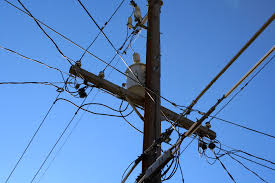
One more phone call...
Shortly after that manager’s call, I received one from the reporter. She chuckled while telling me about her first contact at the power company, who revealed that routine maintenance schedules are computerized and admitted it was possible no human would have made the connection: August equals very high temperatures. DANGER!
Without a nudge from the reporter, the maintenance work would most likely have taken place as scheduled. Pity the poor technicians who would have climbed poles and routinely checked equipment during the heat of the day. Actually, we owe these techs our gratitude all the time because they work outdoors in extreme weather conditions of all types, year-round, to ensure we can flip a switch and have access to everything electric in our homes. The same goes for cable, broadband and phone outdoor techs. I think there should be a National Technicians' Day to honor them...don't you?
The reporter wrote and published the article. I read it online that evening and sent her a "thumbs-up" email thanking her. She included quotes from me as well as quotes from the power company spokesperson who put a positive ending on their side of the story, turning it into a win-win situation. My neighborhood won't have a day that's unbearable without electricity to cool homes, and the power company didn't end up looking like an uncaring corporation. That's balanced journalism.
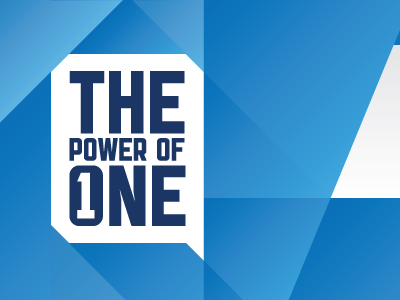
Never underestimate the Power of One!
If I weren’t an assertive (okay, make that “aggressive” if you insist) person who won’t just sit back and let something bad happen without trying to stop it, at least a hundred households in my neighborhood would have been without electric power all day Thursday. Everyone at home during the day—humans and pets—would have been without air conditioning or even a single fan to keep them from dangerously overheating. Mine is a neighborhood with many elderly retirees, so any one of my neighbors or I might have suffered a heat-related medical emergency if the power outage had gone ahead as planned.
Never believe that one person—YOU—can’t make a difference. You can. It all hinges on how you go about it. Make a plan with more than one possible action in case the first doesn’t get the result you want. Carry it through. Be assertive, but not belligerent. While that old saying about the squeaky wheel getting the oil still holds true, the one about catching more flies with honey than vinegar is also meaningful. You can be assertive and firm, yet courteous, simultaneously.
In this situation, I was the ONE person who started the ball rolling. It was picked up and passed on by the newspaper assistant managing editor and then by the staff reporter. The power company manager caught the ball, and the reporter completed the play with her article. The Power of One in action evolves into the power of many, and the result can be nothing short of terrific.
The Power of One principle is why I’ve become a food safety advocate in my senior years…why I sign hundreds of petitions, write hundreds of emails and make numerous phone calls to my Congressional representatives. This concept is why I contact food distribution companies and ask them to do their part toward creating a safe food supply. It's why I reach out to organizations that have the power to bring about positive change. The Power of One is at the heart of my political interests and why I vote in elections.
When I make the small donation to a worthy cause that is all I can afford, my ONE small contribution is added to those of many more people who can also afford only a small amount. They all add up...beginning with one person, one small gift.
The "Power of One" is a concept that's been used in many different contexts and with varying meanings. The phrase has been employed by writers, politicians, advertising copywriters, educators, religious leaders, motivational speakers and others.
Personally, I see it as the power of an individual to make a difference. One person who is proactive can be highly effective by influencing others--from a few people to billions, thereby harnessing a collective power to exceed any outcome that could be achieved alone.
The Power of One--it's available to YOU.
~~~~~~~~~~~~~~~~~~
Thanks for reading and supporting this HubPages writer!
---------------
Please vote and leave comments. Your feedback is valuable to me.
NOTE: I am the author of this article, and it is owned by me in entirety.It is not available for use by reproducing in any form without my express written permission. If you see all or any part of this article (as written) on another site, please notify me where it can be found. Theft of a writer's work is plagiarism, and stealing another's words is no less wrong than any other theft.
© 2013 Jaye Denman


